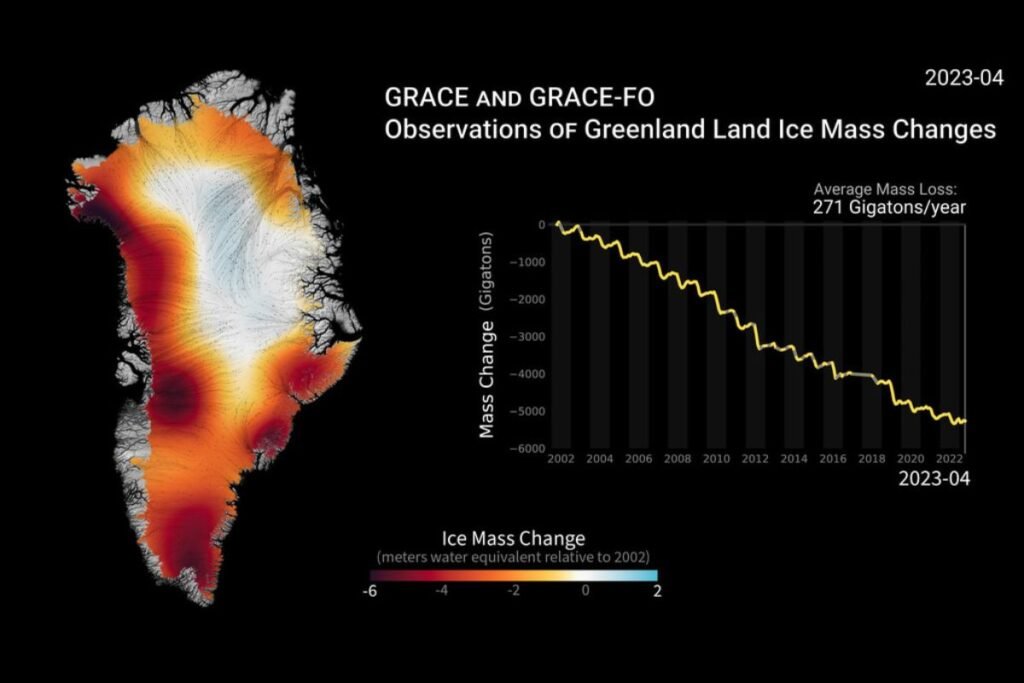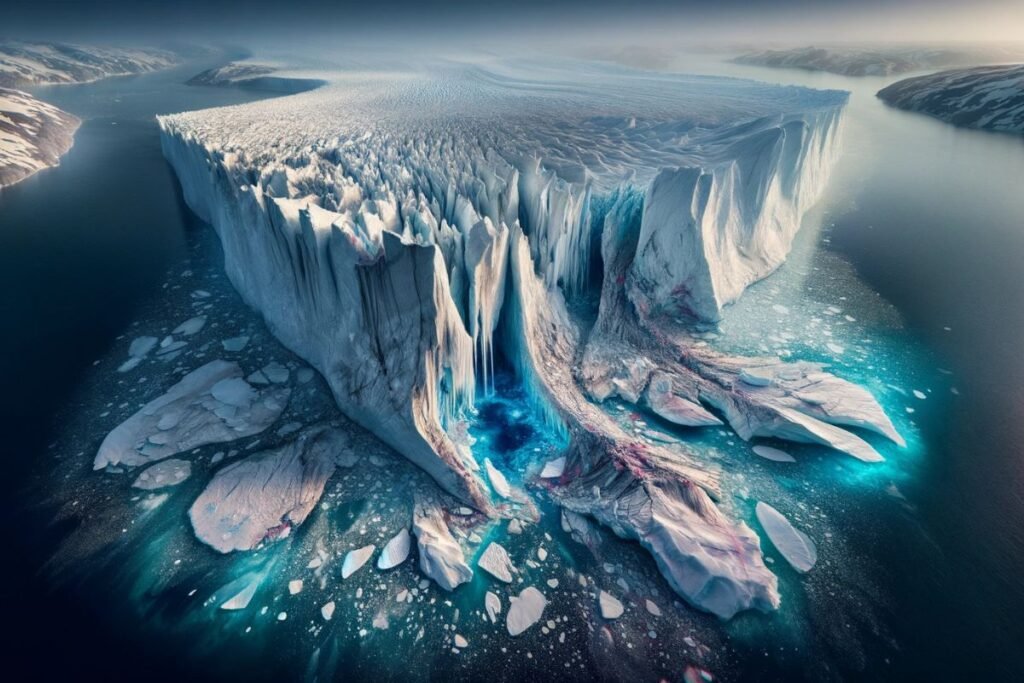Reassessing Greenland’s Ice Loss
Ice Loss: A recent study reveals that Greenland is losing 20% more ice than previous estimates suggested, signaling an alarming sign for global climate.
Insight into the Study

Researchers discovered that ice is primarily disappearing from the edges of Greenland’s glaciers. The study, published in Nature, offers a detailed view of this phenomenon previously difficult to measure.
Glaciers in Retreat: A Universal Sign
“Almost every glacier in Greenland is retreating,” states Chad Greene, a glaciologist and lead author of the study. This global retreat is consistent across the region.
Implications for Sea Level and Global Climate
While the retreat of these glaciers does not add significantly to sea-level rise, the released freshwater has important implications for climate models and ocean currents that regulate global temperatures.
Innovative Research Methods
The team combined over 200,000 satellite observations, creating a comprehensive overview of changes in Greenland since 1985.
Traditional Assessment vs. New Data
Traditional methods measure contributions to sea-level rise but do not capture everything happening at the margins. The recent research adds a new dimension to understanding ice loss.
Indirect Effects on Sea Level
The retreat of the glaciers accelerates melting above sea level, indirectly contributing to sea-level rise, according to Dr. Greene.
Global Consequences of Additional Ice Loss
The melted ice adds a significant amount of freshwater to the ocean, affecting vital ocean currents, including the Atlantic Meridional Overturning Circulation, which encompasses the Gulf Stream.
Study’s Importance for Global Climate
This study helps better understand the global climate system and the distribution of global warming among the atmosphere, oceans, and ice caps.
Our Honest Opinion
The discovery of increased ice loss in Greenland is a crucial reminder of the urgency in addressing climate change. These findings underscore the need for proactive global policies to mitigate environmental impacts on a planetary scale.
See more articles related to climate change and the environment.
You may also like:
- Samsung Galaxy Ring: A Revolution in Wearable Technology
- Unveiling Artificial Intelligence in 2024: Advances, Challenges, and the Future of AI
- Solar Shield in Space: A Bold Vision for Climate Change Mitigation
- Wind Trees: Transforming Urban Spaces with Renewable Energy
- Mastercard AI Revolution: A Leap in Fraud Detection
Source: The New York Times

